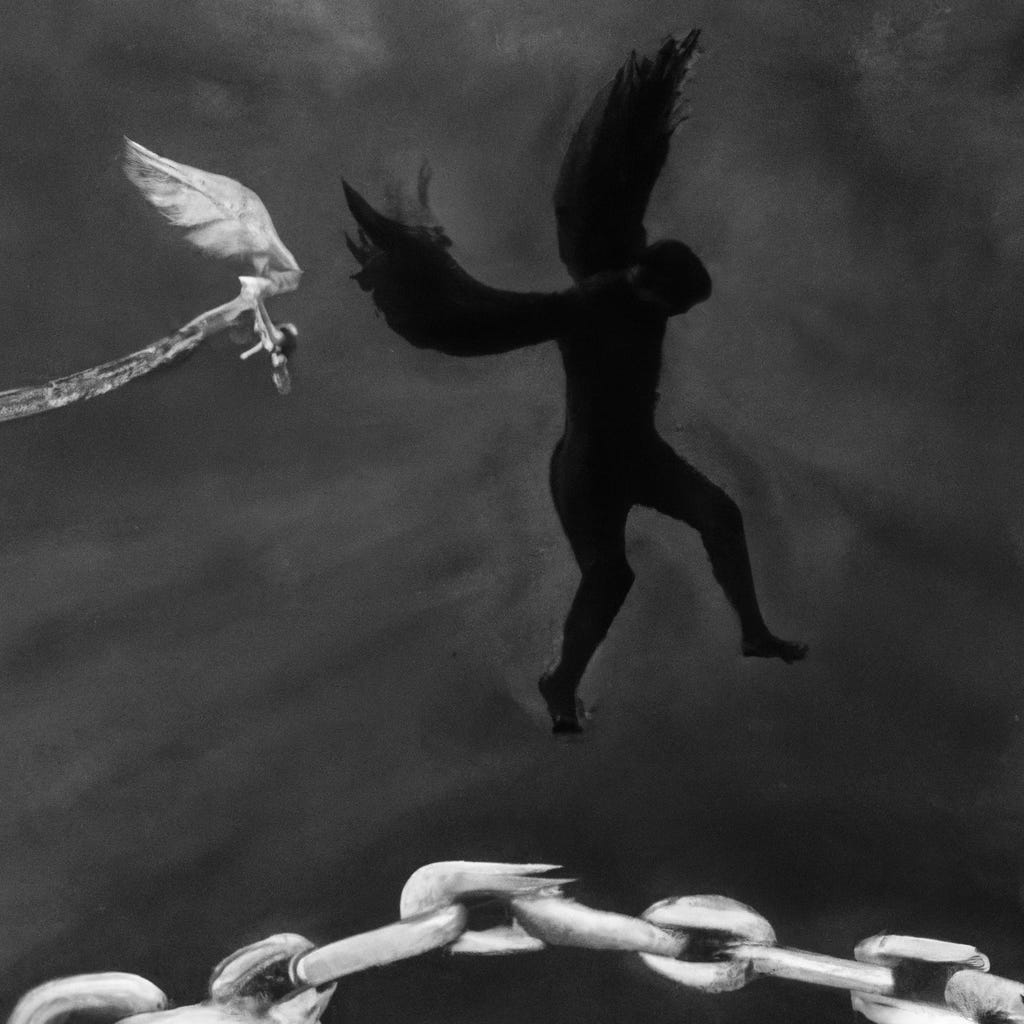What preserves us binds us; what frees us risks us.
Human evolution has shaped our instincts and priorities in ways ensuring survival. Yet, these same forces may limit our capacity to truly understand and engage with the deeper realities of existence.
Our lives are dictated by mechanisms designed to preserve us. These mechanisms—innate drives for sustenance, reproduction, and security—have been refined over millennia to ensure the continuation of our species. They operate beneath conscious thought, silently guiding actions and decisions. Their purpose is clear: survival above all else. But the same forces that anchor us to life also constrain us, creating an environment where much of human effort is funneled into fulfilling needs that, while essential, are not inherently meaningful beyond their immediate function.
This preservation-driven framework narrows the scope of inquiry and ambition. The mind, conditioned to prioritize the practical and immediate, often resists abstract exploration or disruptive change. The routines of preservation foster stability but discourage risk—the kind of risk necessary for growth, innovation, and the pursuit of profound understanding. It is not comfort or safety that leads to transformation; it is uncertainty, challenge, and the willingness to confront the unknown. Yet, such paths are inherently perilous, for they threaten the very systems that ensure our survival.
To navigate this paradox requires deliberate tension. On one hand, there is value in acknowledging the primal instincts that form the foundation of existence. These instincts are neither good nor bad; they simply are. On the other hand, there must be a conscious effort to rise above the immediate, to question the patterns and assumptions that survival has ingrained. This duality—a reverence for what preserves life and a readiness to transcend it—is not easily balanced. The act of questioning itself can destabilize, as it demands stepping outside of what is known and secure.
The challenge, then, is to engage with the world not merely as creatures of survival but as beings capable of shaping meaning. This requires rejecting the notion that life’s highest purpose is simply to endure. It means taking the risk of freeing the mind from its evolutionary moorings and allowing it to wander into uncharted territory. Such freedom, however, comes with no guarantees. It exposes one to doubt, failure, and isolation. Yet, without this freedom, there can be no growth, no understanding, and no progress toward a fuller realization of human potential.
Ultimately, what preserves us does not merely bind us—it defines the boundaries of what we perceive as possible. To overcome these boundaries is to embrace the risk of freedom, with all its uncertainties. It is a leap into a world unshaped by primal imperatives, where meaning must be created rather than inherited. Whether this leap is worth taking depends not on external conditions but on the internal willingness to confront what lies beyond the familiar and the safe. The question is not whether survival is necessary; the question is whether survival alone is enough.

